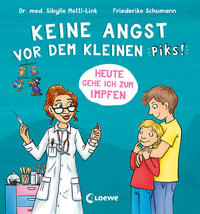Du hast schon alle Folgen auf Netflix gebinged? Hol dir jetzt das Must-read für alle, die nicht genug bekommen von Maeve, Aimee, Eric und Otis!
Ein Buch für alle, die dringend mehr SEX EDUCATION brauchen!
Maeves Bruder steckt mal wieder in Schwierigkeiten. Sie kann ihn natürlich nicht einfach hängen lassen - auch wenn Sean das mehr als verdient hätte! Zusammen mit Otis, Aimee und Eric macht sie sich auf den Weg zu ihm und plötzlich wird aus der halsbrecherischen Rettungsaktion ein abenteuerlicher Roadtrip.
Sean wird von einer Gruppe reicher Jugendlicher beschuldigt, sie bestohlen zu haben. Kurzerhand schleichen sich die vier Freunde in die toxische Clique ein, um seinen Ruf wiederherzustellen. Gar nicht so einfach, denn dabei kommt Unausgesprochenes zwischen Maeve und Otis ans Licht und die Beweise gegen Sean sind mehr als erdrückend …
Tauch noch tiefer ein in die Welt von SEX EDUCATION und erlebe mit Otis, Maeve, Aimee und Eric einen legendären Roadtrip!
Dieser offizielle Roman zur Netflix-Erfolgsserie bietet Fans alles, was sie an SEX EDUCATION lieben: tolle Charaktere, viele Geheimnisse und intensive Emotionen, dazu jede Menge Humor und beste Unterhaltung.
Ob LGBTQI+ oder Body Positivity, Feminismus oder Sextherapie - wie in der Serie gibt es auch im Roman ungeschönte Wahrheiten und Tabubrüche über alles, was wirklich wichtig ist in Sachen Liebe, Sex und Beziehungen.
Mit einem Nachwort von Ilona Einwohlt.
Empfohlen für alle, die die Serie auf Netflix gebinged haben und trotzdem nicht genug bekommen.


































